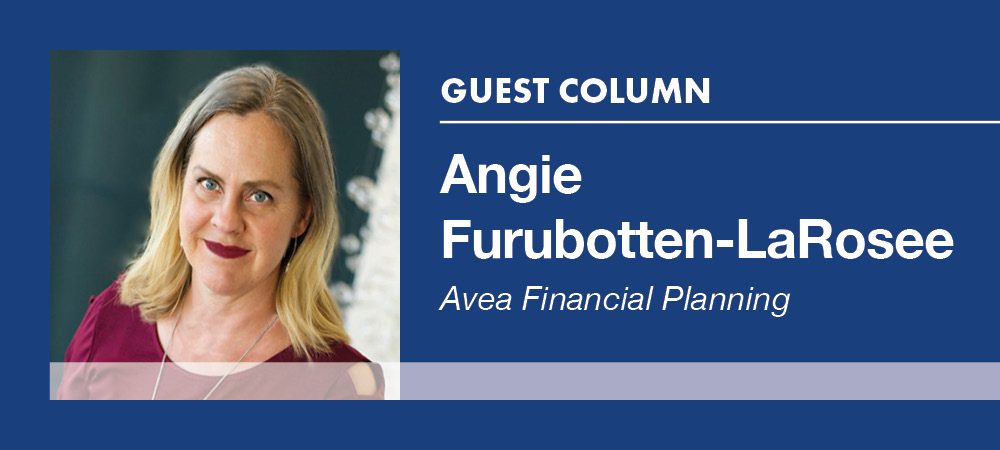
Home » The No. 1 threat to your investment success
The No. 1 threat to your investment success

July 15, 2020
There is the obvious investment advice that certainly you’ve heard again and again:
Set clear and realistic long-term goals.
Keep investing regardless of market fluctuations.
Diversify, don’t put all your eggs in one basket.
Select quality low-cost globally diversified investments.
Seek out a fiduciary professional to support the financial side of your life.
All great advice, especially during the uncertainty of Covid-19.
But I’m going to lay it all out there for you — what I think is the biggest threat to investment success.
That threat is YOU.
Here’s why.
Like Michael Jackson’s famous song lyrics, “I’m starting with the (wo)man in the mirror.”
Walk into your bathroom and look in the mirror. That person staring back at you, is that person your financial friend or foe?
Your behavior is the biggest determinant of success. It is not the markets or the funds you pick, nor is it any global event that has occurred in the past, present or to come. You and your actions are what most influences long-term investment success.
You can be invested in the most perfectly crafted, low-cost, globally-diversified portfolio, but if you abandon your strategy before it has a chance to work (aka, the long term) you won’t be successful.
People abandon their strategy for a couple of reasons. For one, they lose heart because of declines and volatility, or they become fearful based on what’s happening around them. Sounds a lot like recent times, doesn’t it?
Here are a few reminders to help keep you going.
- Over time, markets go up.
Since 1926 there have been roughly an equal number of bear and bull markets, varying in duration and severity. Even so, between 1950-2019 the stock market rose on 54% of trading days. Why? Because earnings continue to increase over time. They won’t increase daily, or even with every quarter, but they will rise over time because people who work at companies are incentivized toward growth, moving life forward.
- Even though markets go up, it is not always a smooth ride.
From 1974-2019 a dollar invested in the S&P 500 would have turned into $154. All that despite major global events, many that we’ve already forgotten, like the oil embargo, high inflation, Black Monday, savings and loan crisis, conflicts with Iraq, the dot com crash, 9/11, and of course the subprime mortgage crisis leading to the Great Recession. Many of these events made for a roller coaster ride.
- Think you can time the market? Think again.
There are no academic papers that support the consistent success of that approach to investing. The only reasonable alternative is to remain invested through even the toughest of times, requiring patience and tenacity.
- Performance, when it comes down to it, is determined by just a few really good days.
Between 1999 and 2018, if you miss the 10 best days, your performance was cut by about half. That’s just 10 days in the span of nearly 20 years. Performance also is driven at any given time by just a few strong performers. Trying to pick those winners is nearly impossible versus being broadly diversified.
What can you do to protect your investments?
First and foremost, stay calm. I describe market cycles like the changing seasons. Anticipate winter but know that the promise of spring is right around the corner.
Get clear on your goals and assess what’s going on in your life. Has anything changed? That might be a reason to modify your investment strategy. Market volatility, fear or greed are not good reasons to make sudden changes.
Watch the expenses on your investments. Often, you can replace higher-fee funds with lower-cost options.
Much like the lottery (which should only be played for entertainment purposes), you can’t win if you don’t play. You must be in the market and stay in to win.
Be informed. Read books or blogs, watch videos and listen to podcasts to arm yourself with knowledge. On Episode 21 of my podcast “The Financial Side of Life,” I interviewed Sarah Stanley Fallaw, daughter of “The Millionaire Next Door” author Thomas J. Stanley. She continues his legacy by studying the “science of building wealth” and has identified six wealth factors: frugality, confidence, responsibility, planning, focus and social indifference. Learn more about these concepts and how they can apply to your life.
Although February and March were tough, the markets have largely come back. This gives you yet another chance to prepare yourself and make a plan for the inevitable ups and downs the rest of 2020 may bring.
You can remove your biggest threat by understanding your own behavior. The next time you look in the mirror, you will undoubtedly see a friend looking back at you and be well on your way to long-term investing success.
Angie Furubotten-LaRosee is a certified financial planner, speaker, podcaster and founder of Richland’s Avea Financial Planning, a fee-only, fiduciary financial advice and investment management firm for women in science, technology, engineering and math and education.
Local News Banking & Investments Wealth Management
KEYWORDS july 2020





